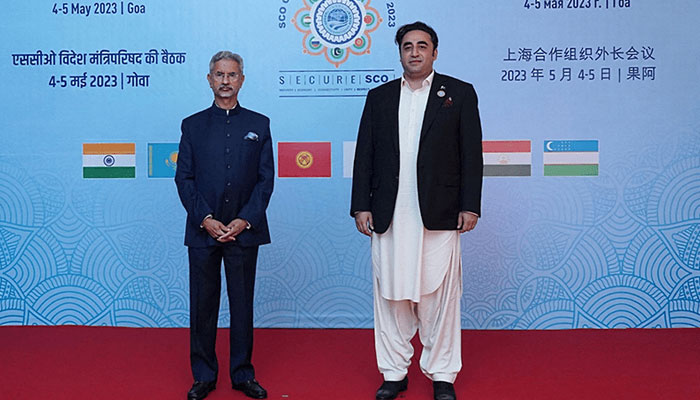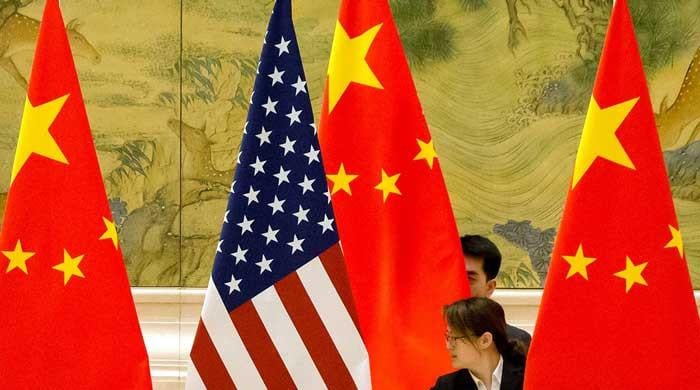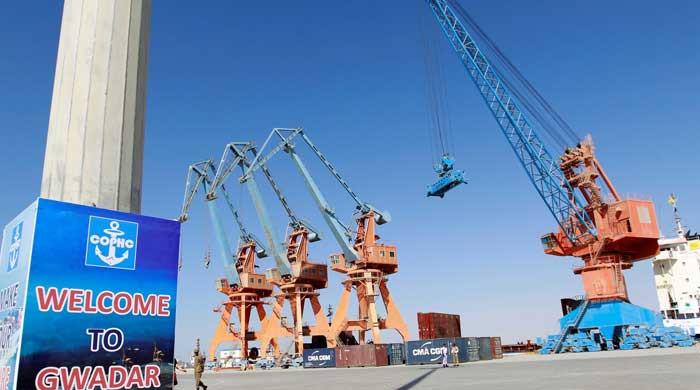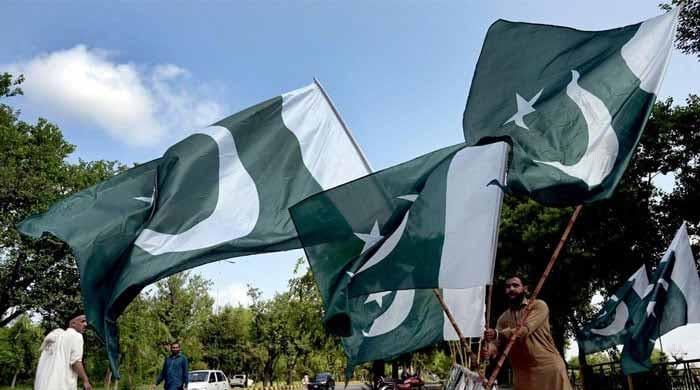What Pakistan achieved from Bilawal Bhutto's Goa visit
FM Bilawal Bhutto-Zardari’s visit to India triggered intensive debate about future of bilateral relations between two countries
May 09, 2023

Foreign Minister Bilawal Bhutto-Zardari’s recent visit to India triggered an intensive debate about the future of bilateral relations between the two countries.
The Kashmir dispute, which is a major cause of the current diplomatic standoff and endless quarrelling between India and Pakistan, also came under discussion across the region.
Pakistan’s decision to participate in the Shanghai Cooperation Organization (SCO) Foreign Ministers’ Conference was a rational one. Bilawal Bhutto’s participation was necessary because the SCO is China’s brainchild. The failure of this initiative could have had implications for China’s diplomatic efforts.
If Pakistan had not been present at the conference, it was highly likely that India would have paddled anti-Pakistan propaganda unilaterally. Therefore, in the conference and later in interviews with the media, Bilawal Bhutto skilfully and eloquently not only presented the Pakistani point of view but also exposed India’s deceitful policies on terrorism and its unfair treatment of Muslims.
Bilawal Bhutto’s interviews offered an alternative point of view as well as Pakistan’s perspective on a number of issues, such as our stand on the resumption of bilateral dialogue with India. Bilawal Bhutto articulated Pakistan’s stance on Kashmir without mincing his words. He has clearly been demanding that India reinstate Articles 370 and 35A of the Indian constitution for Occupied Jammu and Kashmir so that both countries can return to negotiations. This viewpoint is correct, principled, and reflects Kashmiri sentiments.
The way India treated Bilawal Bhutto is highly deplorable. It shows the ruling BJP’s intellectual bankruptcy. India’s response to Bilawal’s visit underlines that political parties seldom sacrifice domestic political successes for foreign policy gains or regional peace.
In fact, the BJP’s vote bank thrives by spreading hate against Muslims, epitomising conflicts with Pakistan, and making Kashmiris a target of physical and psychological torture. On the other hand, there is a border dispute between India and China, and the tension between China and the US has constantly grown. India always remains a willing participant in the US campaign against China, receiving US aid and diplomatic support to counter China. In this context, India continuously challenges the legitimacy of the China-Pakistan Economic Corridor.
In the recent SCO conference, India’s Foreign Minister S Jaishankar also stated that India supports geographic connectivity, but not at the cost of its territorial integrity. In other words, he said that India does not accept the China-Pakistan route passing through Gilgit-Baltistan. In the last 18 months, almost nine senior Indian ministers had vowed that their government would snatch Gilgit-Baltistan and Azad Jammu and Kashmir from Pakistan.
India only seeks to engage with Pakistan on its own terms. The growing economic and military muscles and unprecedented Western powers’ diplomatic support have turned India into a hegemonic regional power. The internal political unrest in Pakistan also emboldens it.
Moreover, many of Prime Minister Modi’s current close aides are known hardliners, including Foreign Minister S Jaishankar, who often comes across as arrogant and power-hungry. He speaks as if he represents the entire world in discussions about Pakistan and loses his balance when criticising them, leaving no stone unturned in his attacks on Bilawal Bhutto, whom he has called a promoter of terrorism, and Islamabad the epicentre of terrorist organisations. India’s National Security Adviser Ajit Doval has advised the Indian government against talking to Pakistan and instead believes that all efforts should be focused on “fixing” Pakistan. Modi’s right-hand man, Home Minister Amit Shah, also appears disinterested in making goodwill gestures towards Pakistan.
Given this context, the question arises: what should Pakistan do? While some recommend that Pakistan should embrace India no matter what, I don’t see any appetite in India for accepting Pakistan as a partner for peace and prosperity in the region and resolving all outstanding issues through peaceful means. Therefore, Pakistan should adhere to its principled stance on Kashmir, rather than seeking negotiations in an incompatible environment. Pakistan should also remain firm in its support for the right to self-determination of the people of Kashmir.
Despite strong opposition from Pakistan and China, India is hosting the G20 tourism working group meeting in Srinagar from May 22 to May 24 to show that normalcy has returned to Kashmir after the removal of Article 370 in August 2019.
This provides an opportunity for Bilawal Bhutto to sensitise G20 members that their participation will be considered an attempt to legitimise the gross human rights violations in Kashmir and vindicate the Indian occupation.
They should be apprised that the region remains heavily militarised, with continuing crackdowns on the right to protest and freedom of speech. Indian jails are filled with political leaders and workers, and the media, especially newspapers, have been turned into government mouthpieces. The G20 countries must understand that their visit to Srinagar will have far-reaching consequences for the Kashmir issue and could embolden India to ignore Kashmiri aspirations and continue to act with impunity.
Information coming from Indian-held Kashmir indicates that the fear of repressive measures is gradually diminishing. Kashmiris are not willing to accept the BJP’s dictates and its ideological onslaught. However, it is a fact that silence prevails in Kashmir due to fear of retaliation, but people are not content with the situation.
Lastly, all Pakistani political parties must understand that Kashmir is an important issue for millions of people, and should not be used as a punching bag or a means to gain political mileage. The series of accusations of betrayal on the Kashmir issue must come to an end.
The writer is a freelance contributor. He tweets @ErshadMahmud and can be reached at: [email protected]
Disclaimer: The viewpoints expressed in this piece are the writer's own and don't necessarily reflect Geo.tv's editorial policy.
Originally published in The News









